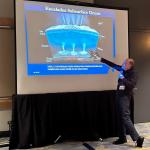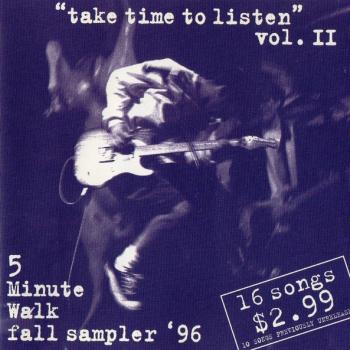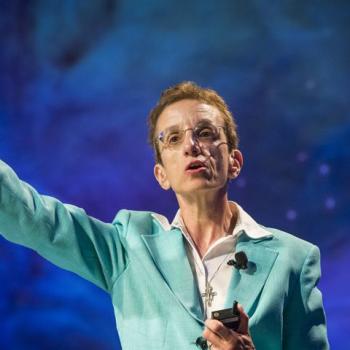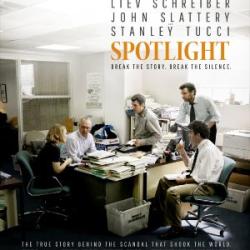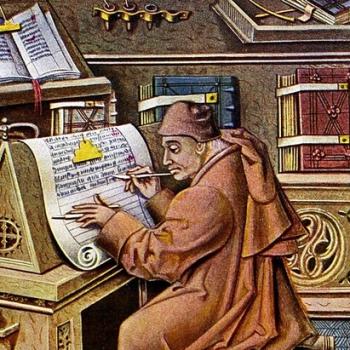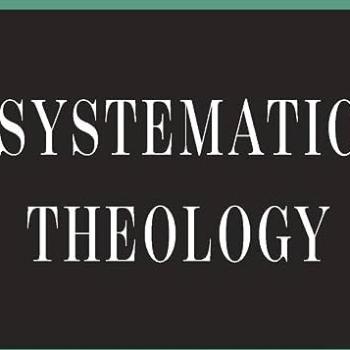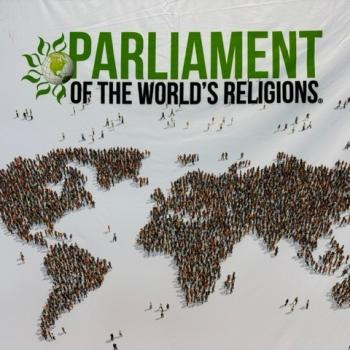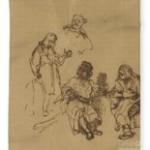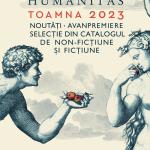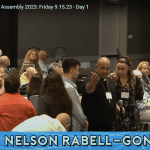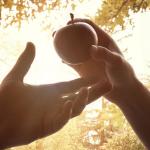Ultimate Unity
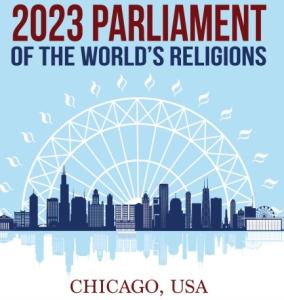
It was 1893, during the first Parliament of World Religions held in Chicago, that Swami Vivikananda (1863-1902) brought the Ramakrishna Movement first to the shores of Lake Michigan and then as the Vedanta Society to all of America. Vivikananda taught religious tole therance plus more. He taught a sense of unity within plurality (Vivikananda, 1893). That same sense is alive and well in 2023 during 130th year anniversary meeting in Chicago, from where I write this blog post.
The parliament theme is “Defending Freedom and Human Rights.” This is a meeting for progressives within a variety of religious contexts, not tradtionalists.
All is one in Brahman at the Parliament of World Religions.

In an earlier Patheos post, “Evolution and Involution in Vedic Science,” I gave Vivikananda some attention due to his contribution to today’s curious mixing of Hindu theology with Western science. Important here is the swami’s metaphysical commitment to unity beyond duality. Attuned to Shankara’s Advaida (non-dualism), Vivekananda held that there is…
“…one substance, manifesting in different ways and in various forms; the one life that runs through all like a continuous chain, of which all these various forms represent the links, link after link, extending almost infinitely, but of the same one chain. This is what is called evolution …. There is one thing more, which the ancients perceived, but which in modern times is not yet so clearly perceived, and that is involution.” (Vivekananda 1994, 2:227).
Where does involution end up? Right where it stared. That’s with Brahman, the source and destiny of all that is. Every religious tradition, whether it’s proponents know it or not, are ineluctably Brahman worshippers in essence. Pluralists such as John Hick have called it “the Real.” If reality is ultimately one, then we religious persons on Earth should ethically exemplify that oneness.
Accordingly, an inter-religious spirituality can absorb, interpret, and celebrate religious symbols that derive from separate histories because they always return our attention to Brahman, to the Real. Note the collection of symbols on the stole worn here by my Berkeley friend, Kala Perkins.

The ultimately Real: is it personal or supra-personal?
We have a theological problem here. Religious studies scholars frequently follow Paul Tillich in averring that religious symbols connect us spiritually with what is ultimate. Symbols bare ultimate valence. I employ the term “confessional universalism” to describe those symbols systems that orient the believer around what is ultimately real. I’ve coined the term, “supra-confessional universalism,” to describe philosophers of “the Real” who themselves don’t confess belief in the real through the symbols they study.

The symbols for God shared by Jews, Christians, and Muslims, imply that ultimate reality is personal. For Christians, the personhood of Father, Son, and Holy Spirit is ultimate. There is no reality beyond these these three persons.
But the symbol, Brahman, like Tillich’s “Ground of Being,” is beyond personality. Because personality implies differentiation, a reality beyond differentiation cannot itself be personal. Yet, for both Tillich and Vivekananda, Brahman expresses itself in the personal dimesnions of differentiated actuality. Personhood is one step removed from the really Real.
So, I’ve become a tad uneasy with supra-confessional universalists who substitute their abstract notion of “the Real” for a symbol of the ultimate, such as “Brahman.” I’m a bit befuddled that one could believe in either an abstract “the Real” or sombody else’s symbol for the ultimate. Yet, before my very eyes, I see it among these individuals. I see many of us milling around the 2023 Parliament of the World’s Religions drawing upon a variety of symbol systems cooperating together on behalf of freedom and human rights. Does the oneness of the Real manifest itself ethically through the ideal of the unity of the human race? Or even the unity of Earth’s biosphere?
Conclusion
Actually, I have no conclusion. More exciting adventures at the 2023 Parliament of the World’s Religions to come,.
Here’s my series of posts from the Parliament.
2023 Parliament of the World’s Religions: Ultimate Unity
2023 Parliament of the World’s Religions: Planetary Hugs
2023 Parliament of the World’s Religions: How Big is God?
2023 Parliament of the World’s Religions: Food Insecurity
2023 Parliament of the World’s Religions: Gaia’s Wizard
2023 Parliament of the World’s Religions: Ultimate Unity
▓
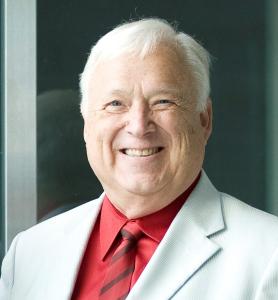
Ted Peters is Distinguished Research Professor Emeritus of Symstematic Theology and Ethics at Pacific Lutheran Theological Seminary and the Graduate Theological Union. Along with Robert John Russell he co-edits the journal, Theology and Science, published by CTNS. He is author of Playing God? Genetic Determinism and Human Freedom (Routledge, 2nd ed., 2002) plus a single volume systematic theology, God—The World’s Future (Fortress, 3rd ed., 2015). Along with evolutionary virologist Martinez Hewlett, he has co-authored three books on the evolution controversy. Peters’ edited and co-edited books such as AI and IA: Utopia or Extinction? (ATF 2019) and The CRISPR Revolution (forthcoming Praeger 2023) explore technological and ethical scenarios that alert us to the need for public policy formulation before matters get out of hand. Ted has just published a new book, The Voice of Public Theology, with ATF (2023). Visit his website, TedsTimelyTake.com and his Patheos blog site on Public Theology.
▓
Bibliography
Vivekananda, Swami, 1893. 1893 Speech at the First Parlaiment of World Religions. Chicago: Chicago Art Institute.
—, 1994. The Complete Works of Swami Vivekananda, 8 Volumes. Calcutta: Advaita Ashram.




